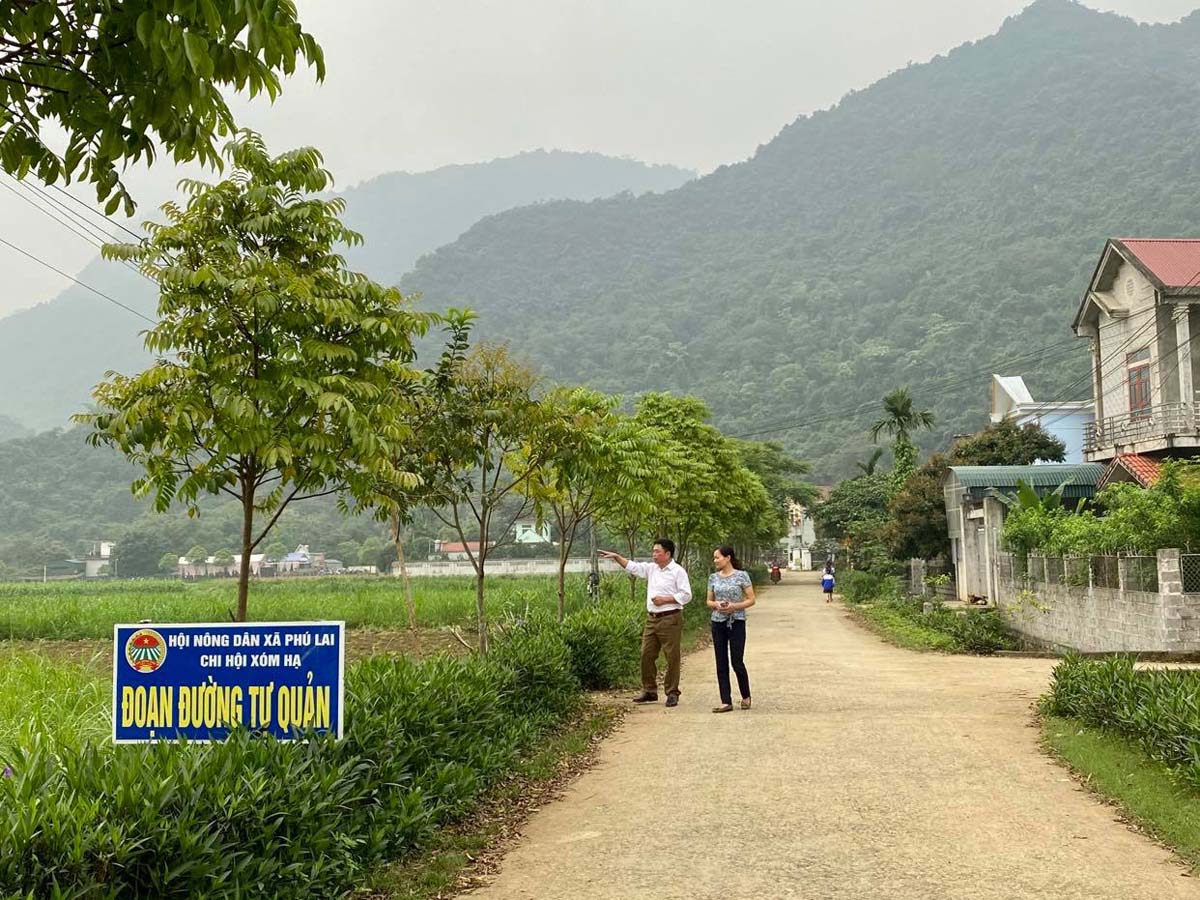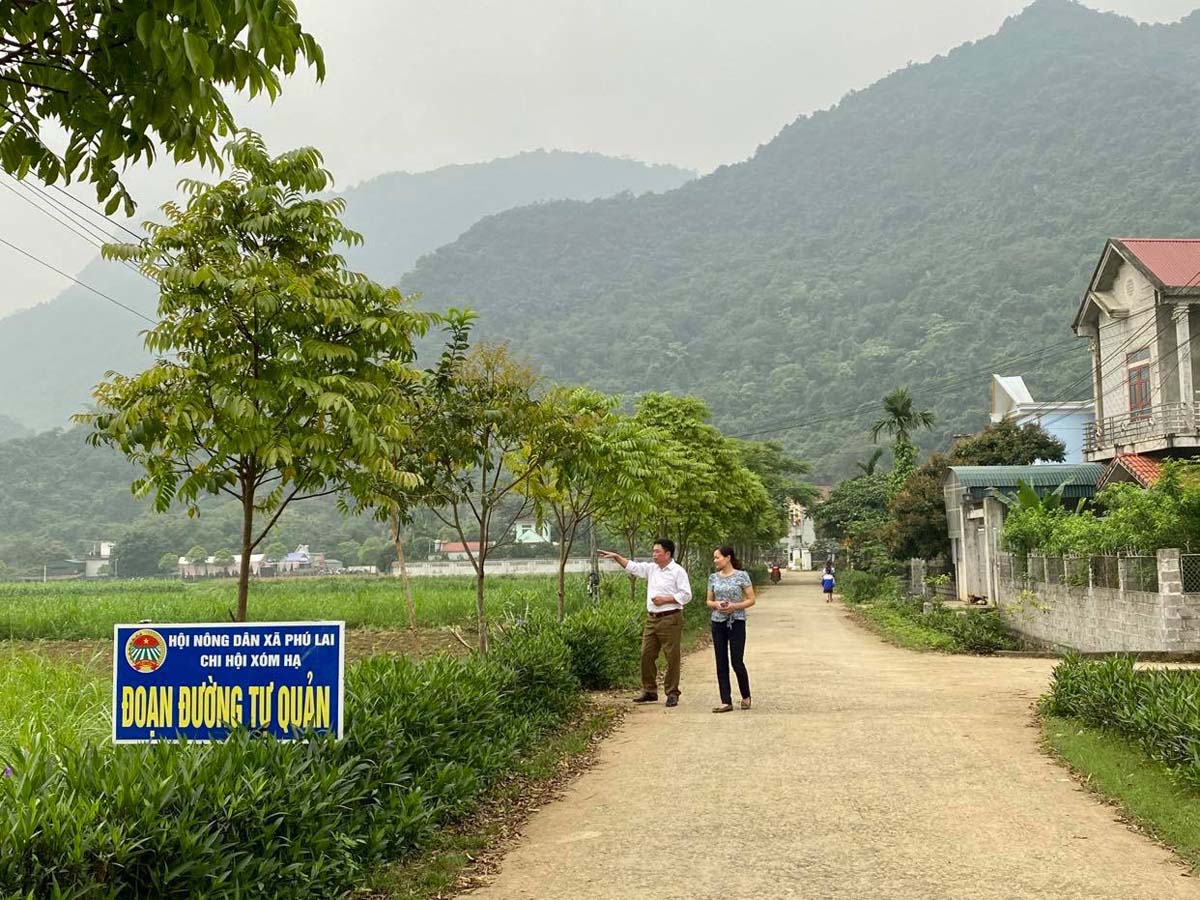
(HBO) – Ha hamlet in Phu Lai commune, Yen Thuy district, was recognised as a model new-style rural residential area for the 2018 - 2020 period. It is home to more than 140 households of three ethnic groups, with 95 percent belonging to the Muong ethnic group. Over the past years, local residents have united and actively engaged in emulation movements, especially the one on building new-style countryside and civilised cities in tandem with the "All people stay united to develop a civilised lifestyle” movement.
 Roads in Ha hamlet of Phu Lai commune, Yen Thuy
district, have been kept clean and beautiful thanks to joint efforts by local
residents.
Roads in Ha hamlet of Phu Lai commune, Yen Thuy
district, have been kept clean and beautiful thanks to joint efforts by local
residents.
Local people have joined hands to help their
hamlet meet the basic criteria of a new-style rural area. So far, more than 90
percent of inter-field paths have been paved while 65 percent of inter-field
irrigation canals and 87 percent of rural roads concretised.
Every year, all local households register to
become cultural families and take part in building new-style rural areas. The
percentage of households recognised as cultural families is always 85 percent
and above. In 2020, up to 130 of the 137 local households, equivalent to 92.1
percent, earned this title.
Besides, Ha hamlet has also stayed free of
people committing crimes or law violations. The school enrollment rate among
school-age children is 100 percent, while the annual percentage of students
with good and excellent academic performance is continually higher than 70
percent.
Apart from a civilised lifestyle, local
livelihoods have also been increasingly improved, with per capita income
reaching 43 million VND (about 1,800 USD) in 2020. The number of poor
households has been brought down to six, equivalent to only 0.04 percent. The
hamlet is now free of makeshift houses.
Annual campaigns calling for support for the
poor and expressing gratitude to revolution contributors also attract great
support from the public./.
With an increasingly vibrant and widespread emulation movement aimed at building cultured residential areas and cultured families, Yen Thuy District has been making steady progress toward improving both the material and spiritual well-being of its people, while fostering a civilized, prosperous, beautiful, and progressive community.
Once lacking recreational spaces and community facilities, Residential Group 2 in Quynh Lam Ward (Hoa Binh City) has recently received attention for the construction of a new, spacious, and fully equipped cultural house. The project followed the model of state support combined with public contributions in both labor and funding.
The "All people unite to build cultural life" movement, which has been effectively integrated with Kim Boi district’s socio-economic development goals, is fostering a lively spirit of emulation across local residential areas, hamlets, villages, public agencies, and enterprises. In addition, through the initiative, traditional cultural values are being preserved and promoted, while community solidarity and mutual support in poverty reduction and economic development are being strengthened.
A working delegation of the Hoa Binh provincial People’s Committee led by its Permanent Vice Chairman Nguyen Van Toan on June 11 inspected the progress of a project to build the Mo Muong Cultural Heritage Conservation Space linked to tourism services in Hop Phong commune, Cao Phong district.
Born and growing in the heroic land of Muong Dong, Dinh Thi Kieu Dung, a resident in Bo town of Kim Boi district, in her childhood was nurtured by the sweet lullabies of her grandmother and mother. These melodies deeply imprinted on her soul, becoming an inseparable part of her love for her ethnic group's culture. For over 20 years, this love for her hometown has driven Dung to research, collect, and pass down the cultural values of the Muong people to future generations.
In the final days of May, the Ethnic Art Troupe of Hoa Binh Province organized performances to serve the people in remote, mountainous, and particularly disadvantaged areas within the province. These were not just ordinary artistic shows, but they were the meaningful journeys aimed at spreading cultural values, enhancing the spiritual life of the people and contributing to the preservation of ethnic minority cultural identities.



 Roads in Ha hamlet of Phu Lai commune, Yen Thuy
district, have been kept clean and beautiful thanks to joint efforts by local
residents.
Roads in Ha hamlet of Phu Lai commune, Yen Thuy
district, have been kept clean and beautiful thanks to joint efforts by local
residents.